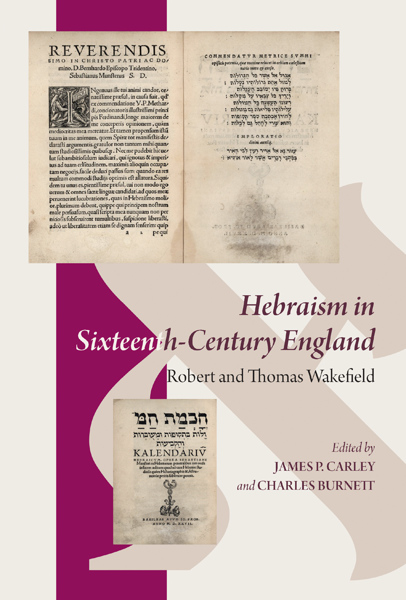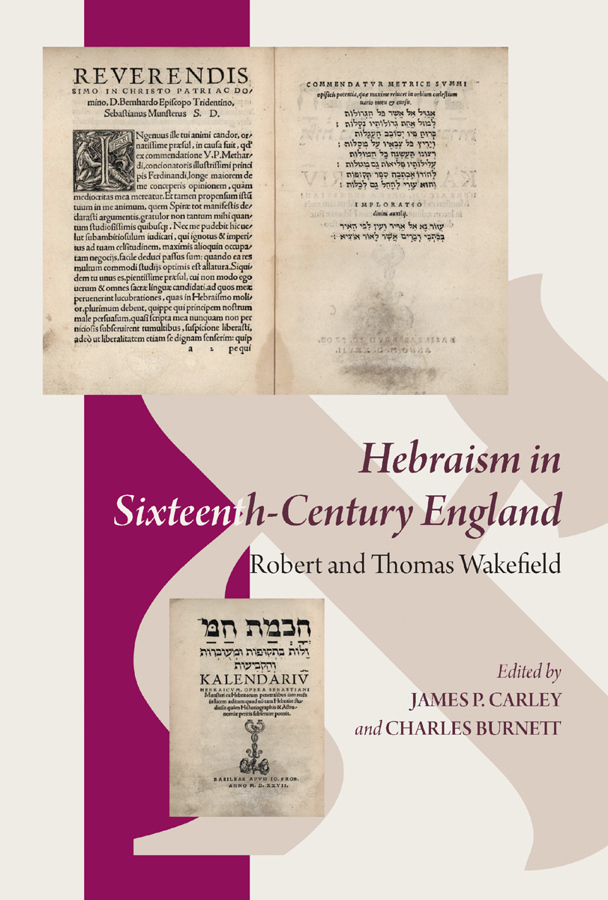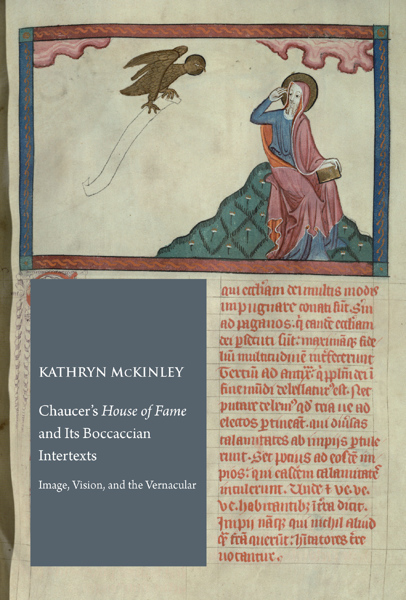
Robert Wakefield, Thomas Wakefield
Hebraism in Sixteenth-Century England: Robert and Thomas Wakefield
James P. Carley, Charles Burnett (eds)
- Pages: 348 p.
- Size:152 x 229 mm
- Language(s):English
- Publication Year:2024
- € 96,00 EXCL. VAT RETAIL PRICE
- ISBN: 978-0-88844-231-4
- Hardback
- Available
Charles Burnett, FBA, is Professor of Arabic/Islamic Influences in Europe at the Warburg Institute, University of London. His research has concentrated on the translations of Arabic texts into Latin in the Middle Ages, in the fields of philosophy, science, religion, and magic. Among his publications are The Introduction of Arabic Learning into England (1997), Arabic into Latin in the Middle Ages: The Translators and their Intellectual and Social Context (2009), Numerals and Arithmetic in the Middle Ages (2010), and The Great Introduction to Astrology by Abū Maʿšar (with Keiji Yamamoto and David Pingree, 2019).
James P. Carley, FRSC, is a Distinguished Research Fellow Emeritus at York University, Toronto, and a Fellow at the Pontifical Institute of Mediaeval Studies, Toronto. He has published extensively on Glastonbury abbey, on the Arthurian legends, and on the foundation of Lambeth Palace Library. His edition of The Libraries of King Henry VIII was published in 2000. His edition and translation of John Leland’s De uiris illustribus, assisted by Caroline Brett, was published in 2010.
Robert Wakefield and his brother Thomas were pioneers in the study and teaching of Hebrew in early modern England. Robert was trained at Cambridge, acquired expertise in Aramaic, Hebrew, and Arabic, and obtained professorial status in Louvain, Cambridge, and Oxford. Thomas took possession of his brother’s books and manuscripts upon his death; he enjoyed long tenure as praelector in Hebrew at Cambridge and was a compulsive annotator of his books. This volume draws together the political, linguistic, and bibliographical materials that shaped the careers of these two scholars, revising previous claims and producing a compelling analysis of Hebrew learning in sixteenth-century England.
List of Figures
Abbreviations
Preface
1 James P. Carley and Charles Burnett
Introduction
2 James P. Carley
Robert and Thomas Wakefield: A Biographical Sketch
3 Jessica Crown
Robert Wakefield’s Inaugural Orations in Context
4 Joanna Weinberg
The Remarkable Hebraism of Robert Wakefield
5 Charles Burnett
Robert Wakefield and Arabic
6 Richard Rex
Robert Wakefield and the King’s Great Matter
7 Saverio Campanini
The “Ezra Scroll” of Bologna in the Crossfire of the Royal Divorce: John Fisher, Robert Wakefield and an Erased Text
8 Judith Olszowy-Schlanger
“My Silent Teachers”: Hebrew Manuscripts as the Source of Robert Wakefield’s Hebraism
9 James P. Carley
Robert Wakefield’s Manuscript Collections and the English Monastic Libraries: A Parallel to John Leland’s Mission
10 James P. Carley
Books Owned or Annotated by the Wakefield Brothers
11 Benjamin Williams
“Great Mountains Suspended from Every Single Letter”: Thomas Wakefield and His Hebrew Bibles
12 Herbert L. Kessler
Thomas Wakefield’s “Antiquissimus Codex” and San Marco’s Musivum Novissimum
Appendix 1
David R. Carlson
Robert Wakefield, “Oratio Oxonii habita in Collegio Regio” (1532)
Appendix 2
Joanna Weinberg
A Hebrew Responsum about Levirate Marriage (1530)
Bibliography
Contributors
Index of Manuscripts
Indexes of Printed Books
General Index


